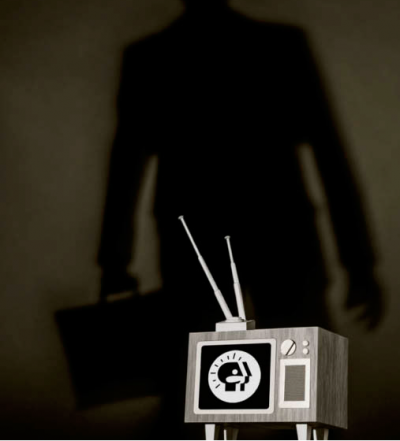US Public Broadcasting Service (PBS): Just Another Outlet for Elite, Establishment-Oriented Views, not a Forum for the Underrepresented

Harper’s on PBS: “The only special-interest group the network clearly favors is the aging upper class.”
In the October issue of Harper’s Magazine (10/14–subscription required), Eugenia Williamson takes a long look at the history ofPBS, with a particular focus on how far the public broadcaster has strayed from its intended mission. What was supposed to be a forum for the underrepresented has long been just another outlet for elite, establishment-oriented views: “Today, the only special-interest group the network clearly favors is the aging upper class: their tastes, their pet agendas, their centrist politics.”
The piece has a great quote from PBS mainstay Bill Moyers:
Night after night…the realities of life for the vast majority of Americans rarely show up on public television—neither in its public-affairs programming nor its primetime fare. There has been one documentary all year on the flailing middle class and the forgotten poor. Our Washington coverage, by design or not, serves up “news” the way the butler serves tea on Downton Abbey, so as not to disturb the master class. Even my friends at WETA, our flagship station in Washington, passed up the award-winning documentary Alice Walker: Beauty in Truth to air instead another episode of Antiques Roadshow and a program about the British royal family. And PBS has commissioned a series for next year, using US taxpayer funds, on the “great homes” of Great Britain. Not on homelessness in America. Unbelievable!
It’s a story that is familiar to FAIR’s readers; as Harper’s notes, we’ve been documenting this for over two decades.
The headline alone–”PBS Self-Destructs: And What It Means for Viewers Like You”–was surely going to rankle people at PBS. And it did; as reported inCurrent (9/18/14), PBS distributed talking points for station managers who might be asked about the article. They aren’t intended to rebut anything in Williamson’s piece; it is mostly a compilation of awards and ratings data to show that PBS is actually doing a wonderful job.
But that wasn’t the only reactionPBS had to the Harper’s article. As Keith Kelly of the New York Post reported (9/25/14), PBS will be pulling ads from the magazine that criticized them:
While there was an ad for the latest Burns saga The Roosevelts: An Intimate History, PBS has pulled ads from the November and December issues. The ads were supposed to hype the box set CD editions of the documentary.
This is well beyond ironic. Public broadcasting was set up in part because of an understanding that advertising exerts pressure on media outlets. Outlets like PBS would be thankfully freed from such entanglements. And now their response to critical coverage is to use their own advertising to signal their disapproval.
If PBS was looking for some gesture that would further confirm the point of Willamson’s piece, they found it.


